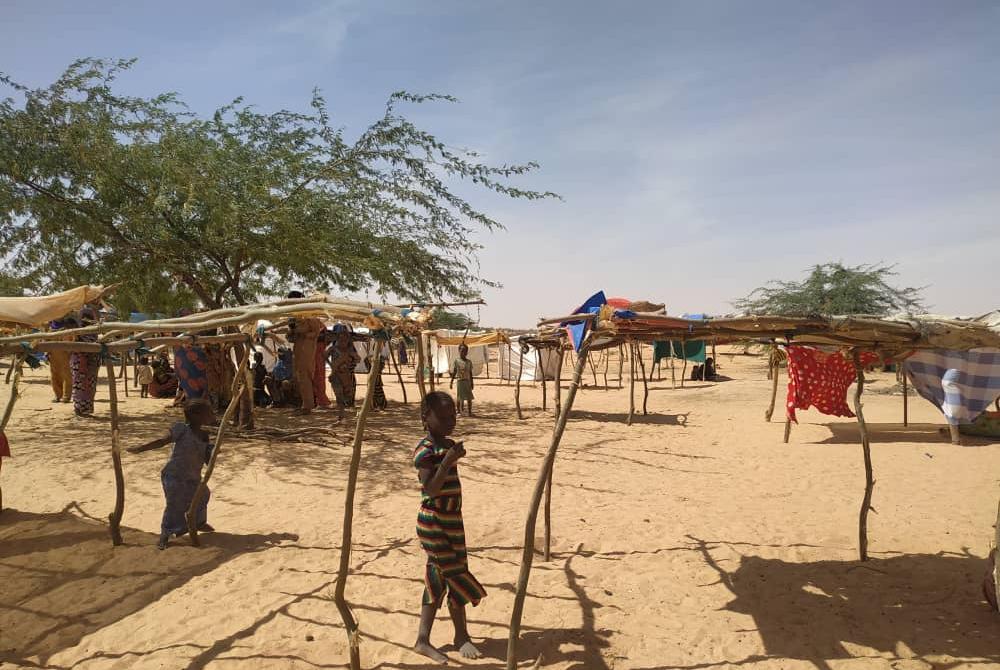Following the continuing waves of violence in the so-called "three-borders region" where non-state armed groups from Mali, Niger and Burkina Faso meet, thousands of people have fled their villages in Niger. In the region of Menaka, a very volatile area, 2,900 households of refugees, returnees and internally displaced people have settled in villages alongside overstretched host communities.
It is in the border town of Anderamboukane and surrounding areas that Médecins sans Frontières (MSF) teams have started emergency response activities to ensure health care and psychological support there. However, this assistance is temporary and cannot meet alone the growing needs of people living in the region of Menaka, the village of Anderamboukane and other surrounding villages.
According to Mohamed Ag Bazet, project coordinator for MSF, "while the situation could worsen—due to violence against civilians in northern Niger that is forcing increasing numbers of people to flee—the humanitarian response is almost non-existent. Our medical teams here are proving emergency health services".
Despite the efforts of local authorities, UN agencies and NGOs that carried out several assessments, the response remains inadequate and emergency needs persist. Elsewhere, in other villages in the region of Menaka, MSF teams also visited two isolated villages in the region of Menaka, Tamalate and Insinanane which have now become home to several hundred families. While health services there are very poor, people's needs are acute.
"People, now living under makeshift shelters, brought very little with them; just some food that they ate within a few days and some cattle", says Mohamed Ag Bazet. "The host community is already struggling to survive and cannot bear the pressure of such significant needs".
The instability has persisted in the region since 2012 and the continuing threat is causing people to flee continuously: many of the newcomers are indeed Malians from the Menaka region who took refuge in Niger before.
In Anderamboukane, most refugees have settled in homes that were gradually abandoned by their residents. The latest wave of departures dates back to December 2019 when the Malian armed forces left the town and, with them, the humanitarian organisations. Many administrative structures in local government also evacuated their staff. Among the residents, those who could afford it went to settle in Menaka and Gao, leaving empty houses.
However some refugees who did not find an empty home to settle into have been forced to build shelters themselves using sticks, tarpaulins and fabric. During the day, temperatures reach 40 degrees while nights are chilly. Windstorms, very common at this time of the year, add to the harsh weather conditions. In their makeshift shelters, families are struggling to protect themselves from the elements and secure some privacy. "Some have settled near a pond in order to stock up with water that is not drinkable, also exposing them to mosquitoes", says the project coordinator. "This explains the large number of diarrhoea and malaria cases seen during consultations by our medical teams".
During the first week of response, 832 consultations were conducted at the Anderamboukane community health centre by MSF teams. Besides malaria and diarrhoea cases, skin and respiratory infections are among the main pathologies recorded.
"Our teams up to two deliveries a day. During the first few days, women had to give birth on the floor because there were no beds in the health centre. It was shocking", says the MSF project manager. "We therefore arranged a suturisation bed as a delivery table. We got some beds in the hospital and bought some mattresses at the market", explains the project coordinator.
Among the team members, Dodo Ilunga specialises in mental health care. His role is to provide psychological support to patients who are often traumatized. "Everyone is in shock", he explains. "Many suffer from flashbacks, hypervigilance and have developed sleeping problems.
A woman separated from her child while fleeing, could not hold back her tears although she eventually found her son after two weeks of searching, in a village 50 kilometres away from Anderamboukane. People have a great need for psychological support. They are often people who have fled violence several times and who have lost everything, their home, their job, their cattle. They are desperate".
In Anderamboukane, Iussouf, the head of the refugee community, called out our team who had come to assess the health needs. "You want to build latrines but what use are they, if you have nothing in your stomach".
As well as decentralised primary healthcare, strengthening routine immunisation and mental health services in Anderamboukane, Insinanane and Talamate, the MSF emergency response also includes distributing non-food kits, clean-up measures and water distribution, as well as the identification and referrals of protection cases. The response team will target other villages in the area.
